Books
Books
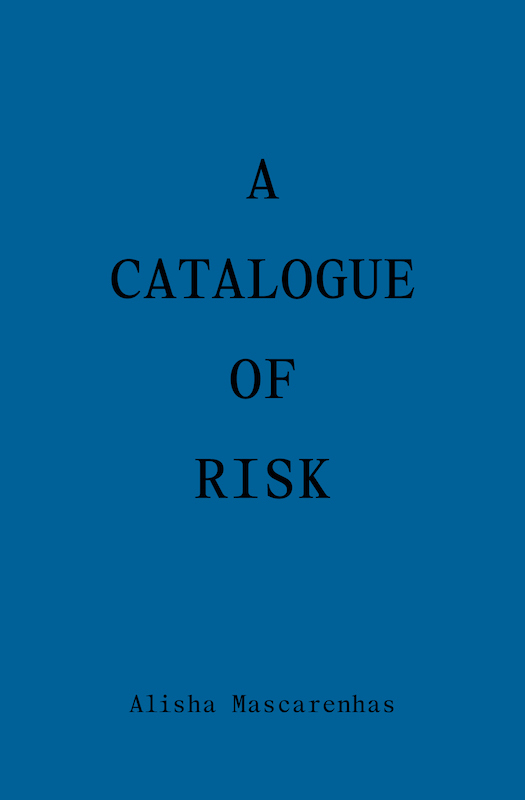
A Catalogue of Risk
Alisha Mascarenhas’s A Catalogue of Risk is a volte-face of the neoliberal market economy’s construction of isolated, individual safety. In her debut book of poems, Mascarenhas lingers in the question of risk as it arises in daily life and intimacy. Through a close study and partial translation of philosopher-psychoanalyst Anne Dufourmantelle’s Éloge du risque (2011), her poems posit risk as a fissure, through which we might imagine yet-unknown futures.
Alisha Mascarenhas’s A Catalogue of Risk is the recipient of the 2022 Carolyn Bush Award.
Alisha Mascarenhas (b. 1989) is a poet and translator and the author, most recently, of the chaplet Contagion Fields (Belladonna* 2021). She has contributed writing to Pamenar Press, The Poetry Project Newsletter, The Recluse, Peripheral Review, and The Felt, among others. Alisha was a 2023 resident at La Baldi Artist’s Residency in Montegiovi, Italy. She holds an MFA in Writing from Pratt Institute in Brooklyn, where she now lives.
There is a body lying across Alisha Mascarenhas’s A Catalogue of Risk. Here is a book of generosity and perdition, that could not anticipate the death of its author, the one these works are addressed to, written for, dreamt by, in a stream of proximities. A strange dismantling of time occurs as a result of quiet reversals in which light is diffracted across belated syntaxes, reaching past life to the living. Though A Catalogue of Risk is “running past the flowers,” it is a slow text that grieves the day’s illuminations. It is a lesson in transmission in which we, readers, are the apprentices of grace, at the edge also of drowning. Here is a book that has been “hungering to be emptied.” So, too, is it a book of promise.
— Nathanaël
A Catalogue of Risk is a book of luminous attention. Alisha Mascarenhas gives us the language of a mind tracking both internal and external weathers, tuning and returning herself to beauty, fear, grief and desire. Attending a cascade of emotions, the poet dwells in questions, knowing that to keep open to difficult questions is to keep open to desire. That she risks such openness, thinking always with others, through pain and love, is an astonishment.
— Madhu Kaza
A Catalogue of Risk poses an evocative challenge, one of prismatic nuance: to pursue multiple angles of intimacy along the life-death continuum of how risk holds, unfolds, and makes one whole. “The definition” of what risk is “is shaded in questions” and runs a gamut of desires and sensations at once libidinal and cerebral. Alisha Mascarenhas risks risk itself with this generous offering of exquisite phenomenology and experiential trace in the form of a full-saturation poetics glowing in amplitude and intensity.
— Brenda Iijima

distinguish the limit from the edge
Theresa Hak Kyung Cha, Jimmy Robert
distinguish the limit from the edge is an intergenerational dialogue between Theresa Hak Kyung Cha and Jimmy Robert. Their connection emerges through the intersection of text and image between selected work from Cha’s oeuvre and Robert’s practice that share the formal strategies of the fold.
Robert’s work utilizes paper as a sculptural material, and his hand sometimes appears to shape the page. For Cha, the fold is present in her compositions enmeshing language through strategies of visual poetry, as in L’Image Concrete feuille L’Objet Abstrait (1976), and Untitled (après tu parti) (1976) which are both previously unpublished. The possibility of overlaying one’s work with the other, emphasised by the book’s spiral-bound double spine, and reverse fold-outs, forges an intimacy, a shared sensibility, and an encounter with the corporeal. In conversation with editor Jacob Korczynski, Robert refers to Fred Moten’s In The Break, stating, ‘Suddenly time falters. Words don’t go there. And if words don’t go there, then what does?’
distinguish the limit from the edge is commissioned by Book Works, edited by Jacob Korczynski and designed by Wolfe Hall. The book is published in association with Participant Inc. with the support of the Ministry of Culture, Sports and Tourism and Korea Arts Management Services, after the exhibition:
flipping through pages keeping a record of time: Theresa Hak Kyung Cha & Jimmy Robert curated by Jacob Korczynski at Participant Inc., 6 September – 3 November, 2024, supported by a Fall 2020 Curatorial Research Fellowship from The Andy Warhol Foundation for the Visual Arts.
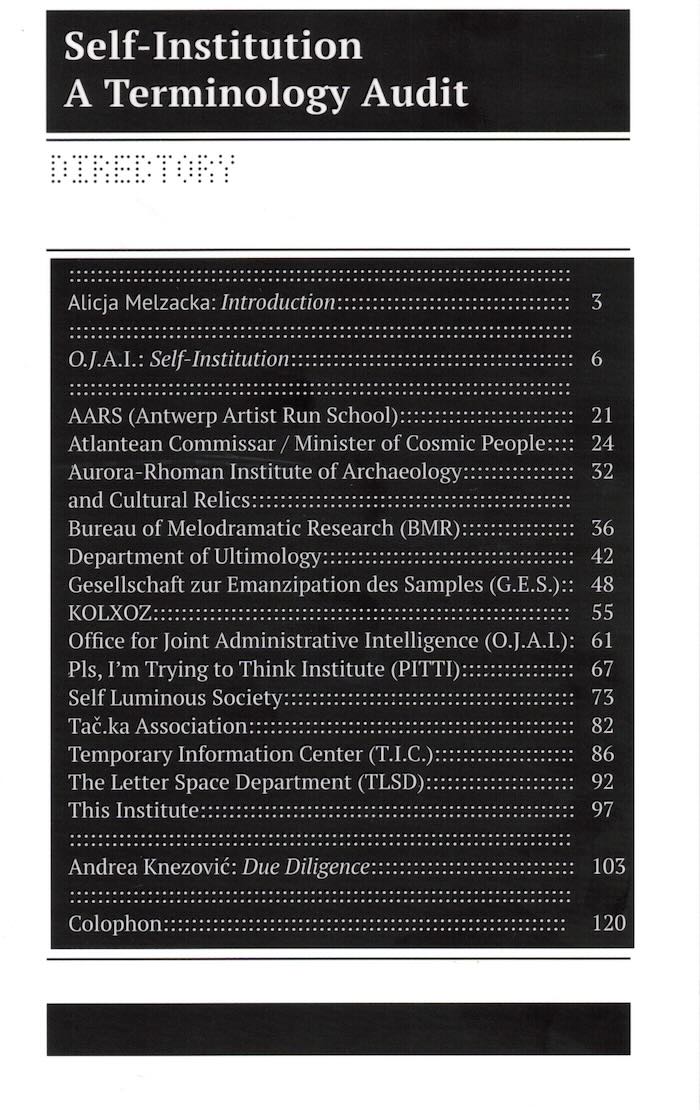
Self-Institution A Terminology Audit
A survey of and reflection on artists using/ hijacking institutional formats.
Self-Institution/Terminology Audit is a collection of profiles and lexicons documenting artistic practices that operate as self-declared institutions. It examines the act of self-institution as both a conceptual and operational approach, focusing on how these practices structure themselves and engage with their contexts.
Initiated by the Office for Joint Administrative Intelligence (O.J.A.I.), this publication investigates artist offices, bureaus, departments, ministries, societies, centres, and other explicitly institutional invocations. The Terminology Audit reveals language and jargon unique to each practice. The case studies, currently active in the field, represent a broad range of approaches, including research-based, performance-driven, pragmatic, materially motivated, counter-institutional, esoteric, and absurd facsimiles of institutionhood.
The publication was conceptualized and introduced by Chris Dreier and Gary Farrelly (O.J.A.I.), featuring an essay by Gary Farrelly, due diligence text by Andrea Knezović, and a responsorial note by Alicja Melzacka. Included self-instituted entities are: The Bureau of Melodramatic Research (BMR), The Office for Joint Administrative Intelligence (O.J.A.I.), Self Luminous Society, Gesellschaft zur Emanzipation des Samples G.E.S, Department of Ultimology, Minister of Cosmic People, Tac.ka Association, KOLXOZ, Pls, I’m Trying to Think Institute (PITTI), This Institute, Aurora-Rhoman Institute of Archaeology and Cultural Relics, AARS (Antwerp Artist Run School), The Letter Space Department (TLSD), Temporary Information Center (T.I.C.).
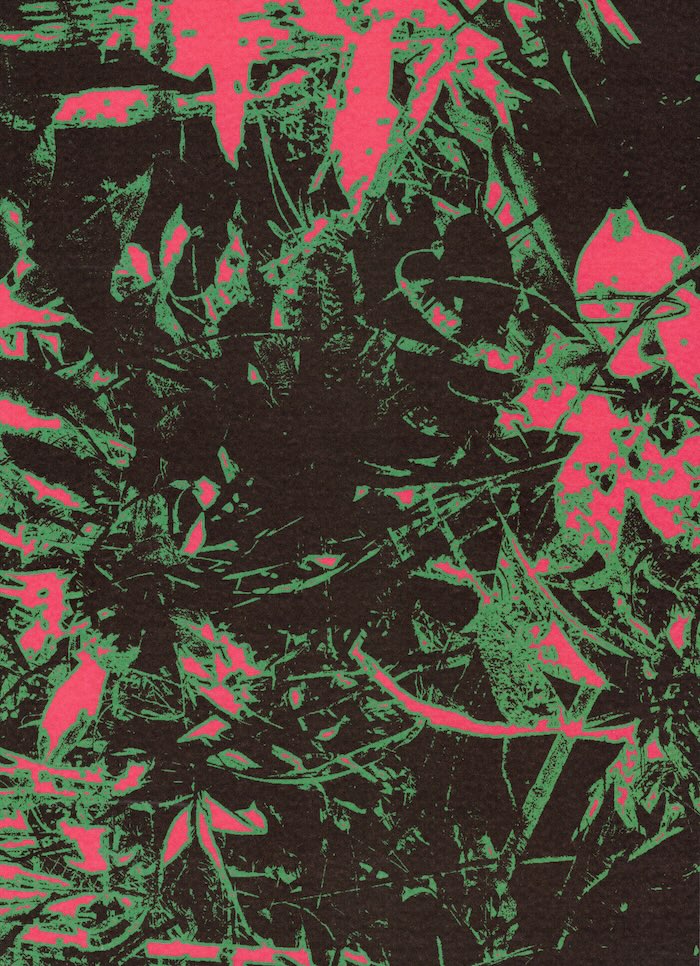
Publiek Park
Jef Declercq, Anna Laganovska and 2 more
The third Publiek Park publication – Walking Guide – combines essays, archival fragments, and artistic voices to trace both the exhibition route at Plantentuin Meise and the historical path that led from the creation of the Jardin Botanique in the heart of Brussels to its relocation outside the city. Following the logic of a quilt, layering different perspectives, textures, and timelines, the book connects artistic narratives with history and reflections on urban gardens, public space, and botanical imaginaries. Just like the exhibition, the publication offers not merely a portrait of a place, but a reflection on the multiplicity that defines it.
Alongside documentation of the exhibition and contributions from the participating artists, this year’s Walking Guide features writings by Nikolaos Akritidis, Denis Diagre-Vanderpelen, Koen Es, Lana Jones, François Makanga, Noam Youngrak Son, and Jean Watt. The two parks are portrayed in photographs by Michiel de Cleene, with book design by Victor Verhelst and Corbin Mahieu bringing all of these elements together.
This publication is made with the generous support of Plantentuin Meise and all partners.
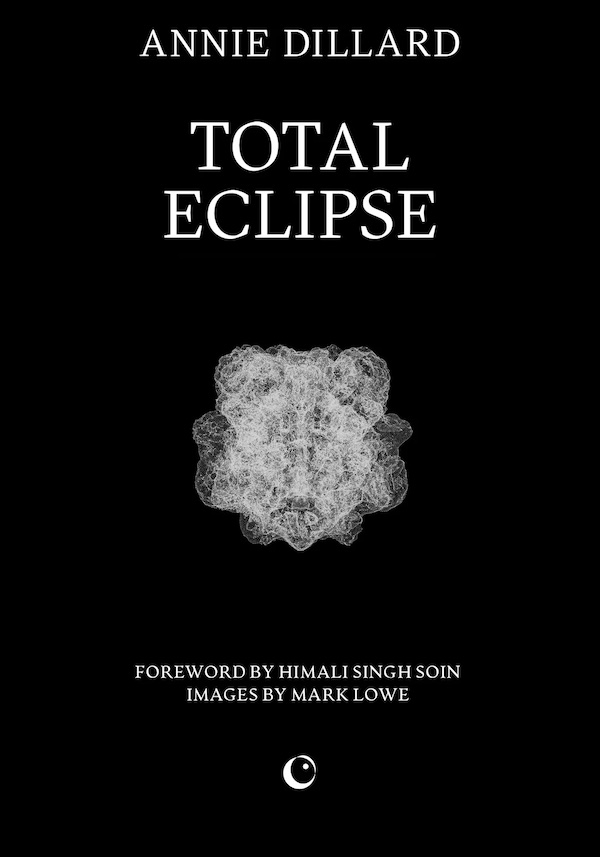
Total Eclipse
What can we know, and what remains beyond our reach?
In 1979, Annie Dillard witnessed the solar eclipse in Yakima, Washington. In Total Eclipse this celestial event becomes a metaphysical reckoning. With lyrical precision and eerie clarity, Dillard unforgettably evokes the strangeness of the shifting sky and the psychic dislocation that descends with the shadow.
The quiet yet epic unravelling of the familiar becomes revelation: a rupture in time, a confrontation with mortality and a brush with the sublime. Juxtaposing the cosmic and the mundane, Total Eclipse meditates on the limits of perception and language, entering the surreal intensity of the phenomenon to emerge with the brief, blazing clarity offered by darkness.
Foreword by Himali Singh Soin
Images by Mark Lowe
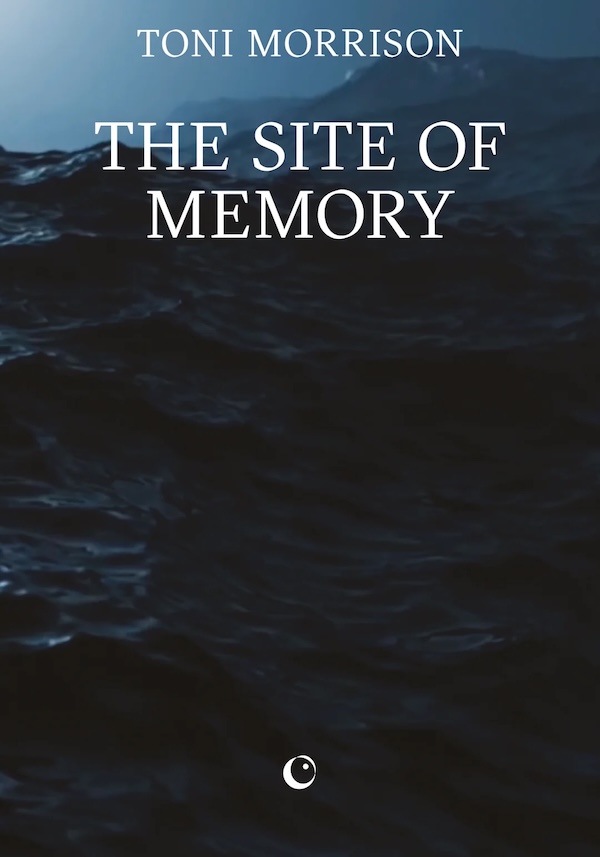
The Site of Memory
All water has a perfect memory and is forever trying to get back to where it was. Writers are like that: remembering where we were, what valley we ran through, what the banks were like, the light that was there and the route back to our original place.
The Site of Memory describes Toni Morrison’s work of literary archaeology. She offers insights into how she arrives at a text through the act of imagination bound up with memory and shows how she explores two worlds – the actual and the possible – via the nimbus of emotion surrounding the journey of an image: from picture to meaning to text.
Exploring the radical possibilities of literature and the limits of history, Morrison finds a truth deeper than documentation in the silences and omissions in African American narratives of the past. Fiction, for Morrison, is a practice of ethical restoration: a means to recover what history has neglected through the ‘flooding’ of a rush of imagination. In The Site of Memory, ancestral presence, emotion and imagination converge.
If writing is thinking and discovery and selection and order and meaning, it is also awe and reverence and mystery and magic.
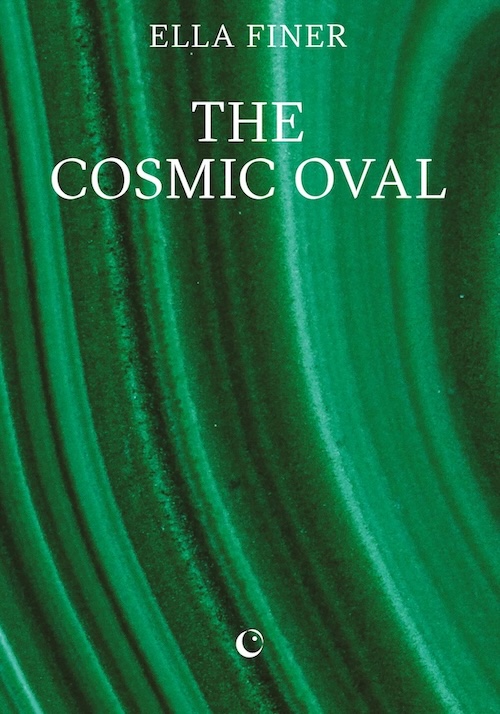
The Cosmic Oval
The Cosmic Oval is a nocturnal entrance into an exploration of feminist cosmologies, storytelling and the many ways of knowing and imagining the hot blue beginnings of time. By turn dreaming and waking, Ella Finer enters history and imagination from the sleep side, taking her cue from Anne Carson. Finer attends to cultural memory as composition, gathering cosmic guides with whom to listen beyond what is given to hear.
In west London, the entrance to architect and theorist Charles Jencks’ Cosmic House is overlooked by The Cosmic Oval, a representation of the origin of the universe referencing both contemporary scientific discoveries about its elliptical shape and ancient cosmogonic myths. Finer’s imagined conversation between the figures who inhabit the frieze surrounding the Oval, such as Hannah Arendt, Imhotep and John Donne, re-orchestrates cultural history to explore social scenes of study and the way knowledge moves through bodies and time.
Commissioned by the Jencks Foundation at The Cosmic House.
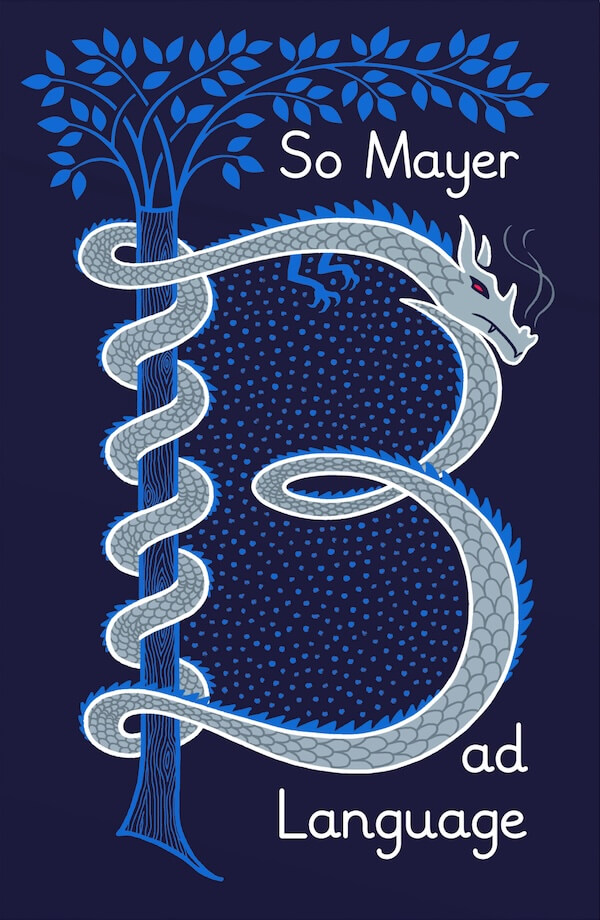
Bad Language
There is no such thing as a safe word.
In Bad Language, So Mayer blends memoir and manifesto as they explore the politics of speech, while looking at how language has been used – and abused – in their own life. What is the relationship between language and sexual violence? And how can we ‘make ourselves up’ in language when words themselves are encoded by a dominant culture that insists we see ourselves as powerless listeners rather than active speakers?
Examining the semantic traps of their multi-lingual childhood – and taking in texts from the Torah to Grimms’ Fairytales, from protest bust cards to the works of Ursula K. Le Guin – Mayer asks who gets to speak, and who is forced into silence. Bad Language calls out the harm that words can do, while searching for crafty ways through which we can collectively reclaim language for protest and pleasure.
‘Mayer’s writing is generous, astute and sincere; in Bad Language, they choose their words carefully, using incantation and spell to distil a complex argument – the transformative power of language lay in its ability to shape sense perception. For Mayer, the task of ‘making ourselves up’ is another way of asking, what kind of world do we want to live in?’ – Lola Olufemi
SO MAYER is a writer, editor, bookseller and organiser. Truth & Dare, their first collection of speculative fiction, was longlisted for the Republic of Consciousness and Edge Hill Short Story prizes. With Sarah Shin, they co-edited Ursula K. Le Guin, Space Crone, winner of the 2024 Locus Award for non-fiction. Bad Language is their second book for Peninsula, after A Nazi Word for a Nazi Thing.
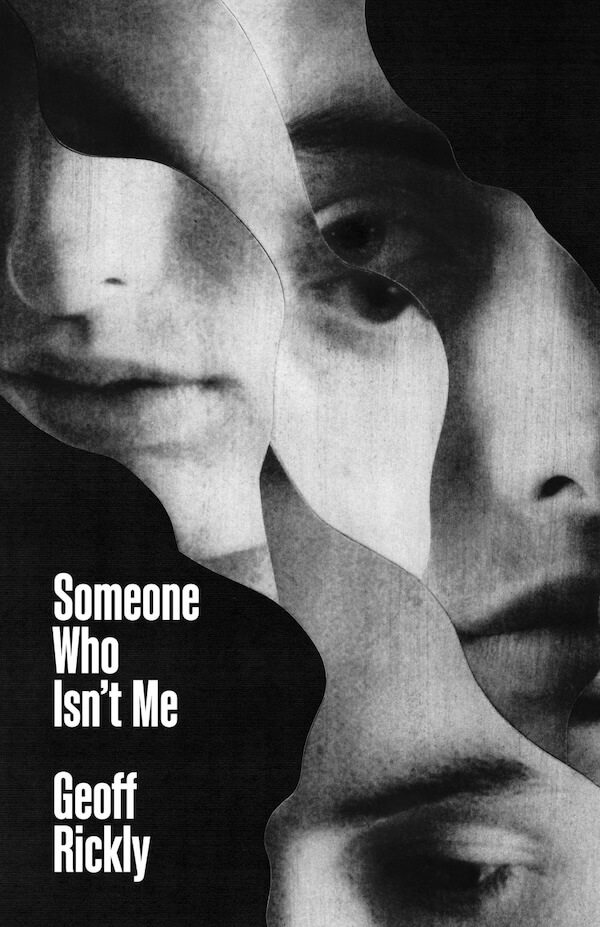
Someone Who Isn't Me
Geoff Rickly’s debut novel Someone Who Isn’t Me is a feverish journey through the psyche of someone who no longer recognizes himself.
When Geoff hears that a drug called ibogaine might be able to save him from his heroin addiction, he goes to a clinic in Mexico to confront the darkest and most destructive versions of himself. In this modern reimagining of the Divine Comedy, survival lurks in the darkest corners of Geoff’s brain, asking, will he make it? Can anyone?
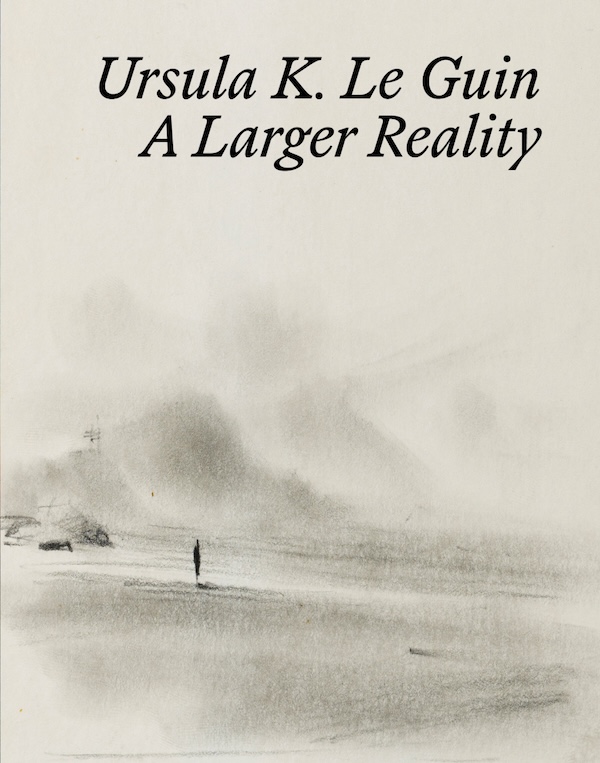
A Larger Reality
Ursula K. Le Guin, Conner Bouchard-Roberts
A beautiful compilation of poems, stories, essays, talks, and illustrations by Ursula K. Le Guin. Edited and designed by Conner Bouchard-Roberts.
With additional essays on Le Guin's thinking and craft by: adrienne maree brown, Isabelle Stengers, Moe Bowstern, Lola Milholland, Nisi Shawl, David Naimon, Mary Anne Mohanraj, Margaret Killjoy, Julie Phillips, and Harold Bloom.
This book serves as the companion publication to a gallery exhibition, of the same name, about Ursula’s life and work, showing at Oregon Contemporary Museum (from Nov 1st 2025 - Feb 8th 2026 in Portland, OR) curated by the Author’s son, Theo Downes-Le Guin.
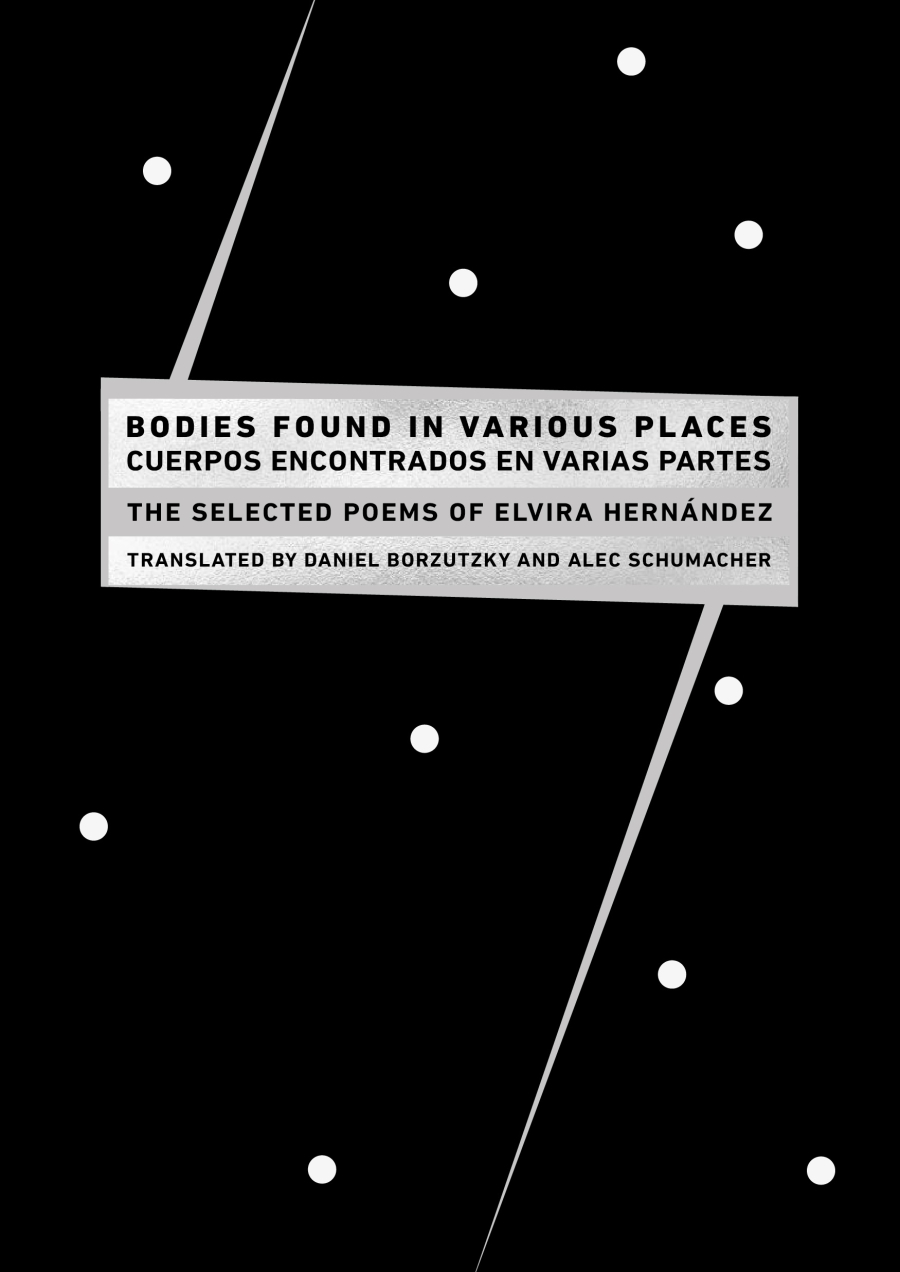
Bodies Found in Various Places
Elvira Hernández, Daniel Borzutzky and 1 more
The first anthology of Elvira Hernández’s poetry translated into English brings the award-winning contemporary Chilean poet's work of love, survival, persistence, disturbance, amazement, and delight to a new audience.
Elvira Hernández has occupied a marginal position in the Chilean poetic scene for decades, her quiet but mordant voice looking inward and outward, ironizing the circumstances of life that have brought us to this critical point in society. As recently as 2018, her work has become more visible after receiving the Jorge Teillier National Poetry Award (2018), the Pablo Neruda Ibero-American Poetry Award (2018), and the National Literature Prize (Chile 2024). With this belated recognition of her work has come an interest in studying her unique poetic language, with new critical books forthcoming from Spanish and Latin American publishers. Bodies Found in Various Places collects poems written from 1981-2016, providing readers with a curation of texts that show why Hernández is one of the most vital Latin American poets writing today.
"Elvira Hernández wrote her poem “The Chilean Flag” after she herself had been detained and tortured by the dictatorship for not complying with its lies. While Chileans were trained to look the other way, to go quiet by this terror, Elvira Hernández wrote a poem that could not be printed. Yet, the poem escaped like a prisoner and began circulating in Xeroxes, from hand to hand, until ten years later it was finally printed in Buenos Aires. In Elvira Hernández’s poetry, each line restores the right of words to speak. Each word becomes a healer, a prayer for a wounded, enslaved humanity forced to obey the rule of profit over life."— Cecilia Vicuña, author of Spit Temple

Tripwire 16 - Performance/Writing
A special issue focused on performance writing, with work by Tanya Lukin Linklater (with Michael Nardone), Jibade-Khalil Huffman & Simone White, Jean-Thomas Tremblay, Claudina Domingo (trans. Ryan Greene), Kim Rosenfield, Nathan Walker, Liz Knox, Rona Lorimer, Léo Richard, & Hector Uniacke, Mohamed A. Gawad & Dalia Neis, Mei-mei Berssenbrugge & Teddy Yoshikami, interviewed by Michelle N. Huang, Kyoo Lee and Jocelyn Saidenberg, Adriana Garriga-López, Gabrielle Civil, plus a Kevin Killian Tribute, with Eileen Myles * Scott Hewicker * Cliff Hengst * Karla Milosevich * Craig Goodman * Michelle Rollman * Anne McGuire * Wayne Smith * Tanya Hollis * Steve Orth * Lindsey Boldt * Maxe Crandall * Arnold J. Kemp * Carla Harryman, Lee Ann Brown & Tony Torn * Susan Gevirtz * Laynie Browne * Patrick Durgin * Norma Cole * Jo Giardini. & reviews: Jessica Lopez Lyman & Jocelyn E. Marshall on Gabrielle Civil, alex cruse on Merce Cunningham, Rob Stanton on Anne Boyer, Jack Chelgren on Miyó Vestrini, David Grundy on Stephen Jonas, Virginia Konchan on Sarah Vap.

Tripwire 19 - Sean Bonney Tribute Issue
Sean Bonney Tribute Issue
Don’t say “Rest in Peace,” say Fuck the Police: A Sean Bonney Tribute Portfolio, featuring: Katharina Ludwig, Lama El Khatib & Haytham El Wardany, Anahid Nersessian, Vicky Sparrow, Koshka Duff, Max Henninger, Joshua Clover, Jasper Bernes, D.S. Marriott, Fran Lock, Joey Frances, Mathilda Cullen, Nicholas Komodore, David Lau, Eve Richens, Sacha Kahir, Uwe Möllhusen & Marie Schubenz, Kashif Sharma-Patel, Linda Kemp, Daniel Eltringham & Fred Carter, Hugo García Manríquez, Jèssica Pujol Duran & Macarena Urzúa Opazo. With additional work by Belén Roca, translated by Noah Mazer, Adelaide Ivánova, translated by Chris Daniels, stevie redwood, Cait O’Kane, Mau Baiocco, Peter Bouscheljong, translated by Jonathan Styles. Zheng Xiaoqiong, translated by Zhou Xiaojing, Mayamor, translated by Eric Abalajon, Afrizal Malna, translated by Daniel Owen, Jorge Carlos Fonseca, translated by Shook, James Goodwin, Amalia Tenuta. Plus Engagements: Anne Boyer interviewed by Eduardo Rabassa, Gail Scott interviewed by Michael Nardone, Noah Ross on David Melnick, Guillermo Rebollo Gil on Pedro Pietri, Coco Fitterman on Ennio Moltedo, Sam Moore on Aaron Shurin, David Grundy on Lorenzo Thomas
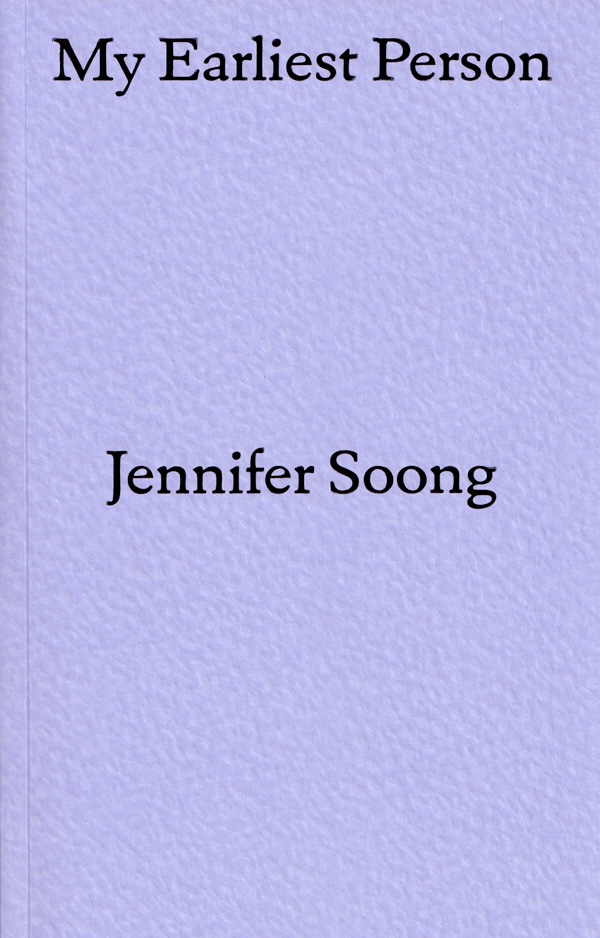
My Earliest Person
Lyrical drifts warped by syntax into blizzarding softness; odes to beauty, meaning, and inexperience splintered by history and grammar. An aqueous surface marbled with the lightest possible touch, lost footings arrested by change’s near-griplessness.
None of this matters. It’s only supposed
to save you from yourself. None of this
matters, when I try to take it out of me into
the world, which to find I can praise
I go out to
Composed across two winters between late 2022 and early 2024. Contains 43 poems.
“This luscious and needle sharp collection is a real feat of the textual imagination, wow.” —Adam Piette, Blackbox Manifold, no. 34
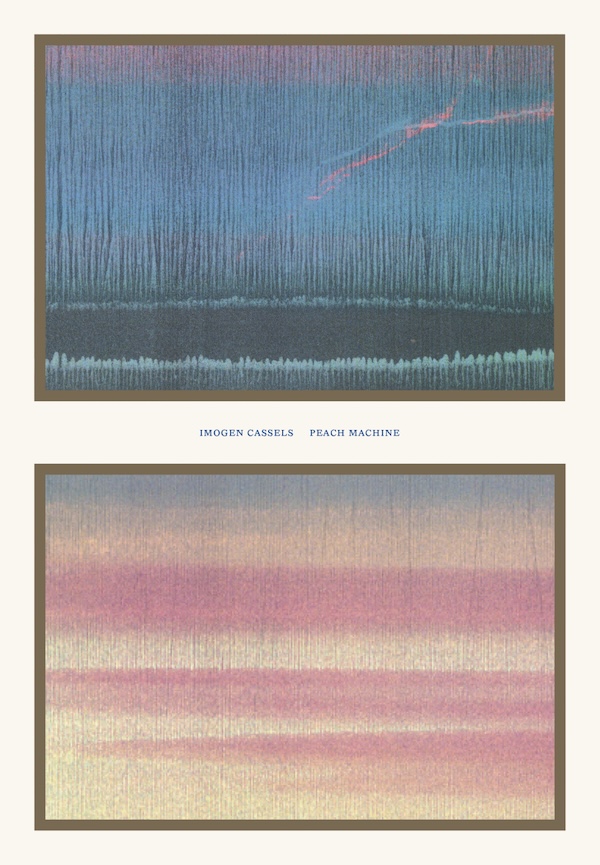
Peach machine
Peach machine comprises nine months of poems, tracing a recurrent cycle of sickness, heartbreak, reparation, and recovery from late summer back into early Spring. The work is roughshod: grieving, oxygen-starved, jetlagged, reflective, and relieved.
Designed and typeset by Phil Baber.
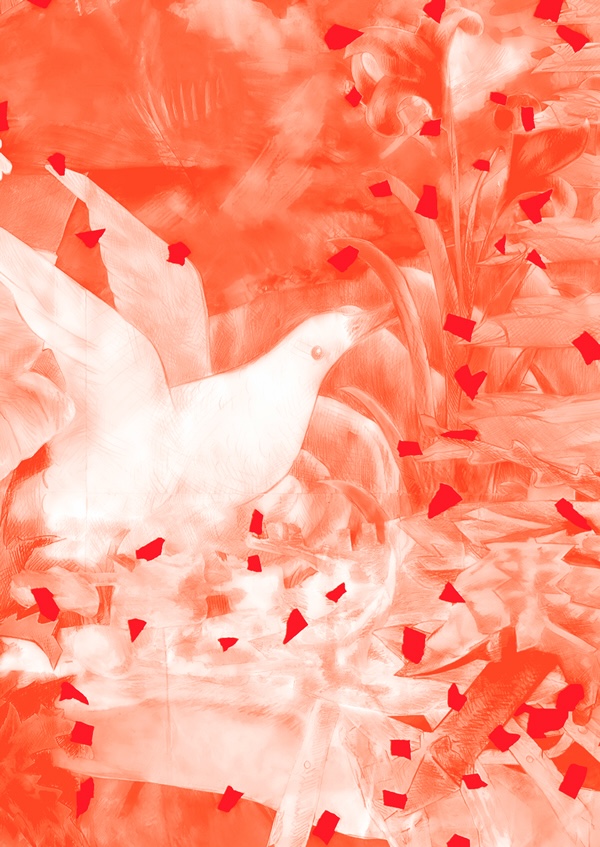
First Nettles
First Nettles collects poems written between 2021 and 2024, from precarious off-key lyrics to sprawling elegies of damaged life. A book of flailing, desperate music, hurt and hopeful, held together by pins and gaffer tape, art and courage and comradeship. Includes the sequence “Seizures” (2022) – “perfect in its openness and lyrical disfigurement” (Danny Hayward).
“[An] exhilarating collection […]. The sequences here are ferociously and admirably radical, with some superb political satire and verve to the poems.” —Adam Piette, Blackbox Manifold, no. 34
Designed and typeset by Phil Baber; cover collage by Sam Keogh

In Abeyance
With this new book of sedimented lyric, John Wilkinson’s poetry enters a terrain of creatures flattened in shale, in flat screen and in digital code. If Silicon Valley would repopulate Jurassic Park and defeat death, Wilkinson’s poetry would make actual what slides past in the disregarded day, whether the flattening of a city or the return of seasonal blossom. This poetry swells dry roots; it breaches the total coverage that flatlines the heart’s response, through its urgent and generous rhythms.
Designed and typeset by Phil Baber.

Jokes
Jokes is a crash course in psychic disintegration for the genocide generation. Ever wondered what a spoonbill thinks of peremptory norms? Or what a hippo can do with an egg-slice? What’s the secret of the success of men like David Papazian and Johnnie Moore, who get to run the Gaza Humanitarian Foundation, while poetry-reading demographics, from the higher and intermediate managerial and professional occupations down to the footwells of unskilled manual self-erasure, lie around standing up for themselves and fornicating with the void? An Author’s a Joke, to all manner of Folk, wherever he pops up his Head, his Head, wherever he pops up his Head, according to Fielding. But why? The 27 jokes of Jokes unfold over the course of a duration-block, in an exclusive interior, under new management, in the capable trotters, paws, hooves, claws, tentacles, jaws, beaks, and blowholes of a fabulous parliament of beasts, some drunk, some dead, some leery, some high, some tender, in the tradition of Boccaccio or Isaiah. They are all funny.
Designed and typeset by Phil Baber.

Machine Decision is Not Final
Amy Ireland, Anna Greenspan and 2 more
Visions of the contested future of AI veer between common planetary goals and a new Cold War as culturally-specific models of intelligence, speculative traditions, and thought experiments come up against the emergence of novel forms of cognition that cannot be reduced to any historical cultural tradition.
This uniquely-positioned volume provides expert insight into this tension, using China as a touchstone for rethinking ‘artificiality’ and ‘intelligence’ as sites of difference in a way that is already present in the difficulty of precisely translating the Chinese term 人工智能.
Spanning borders between different worlds, histories, futures, and foundational models, Machine Decision is Not Final is not only a timely reappraisal of the stakes of AI development, but a toolbox for constructing more global imaginaries for the future of AI.
Moving beyond the clichés that still dominate the contemporary debate, this interdisciplinary, cross-cultural collection decenters familiar narratives to provide a fresh perspective on what artificial intelligence is today, and what it might become.
Contributors: Blaise Agüera y Arcas, An Bo, Benjamin Bratton, Chen Qiufan, Gabriele de Seta, Shuang L. Frost, Vincent Garton, Steve Goodman, Yvette Granata, Anna Greenspan, Amy Ireland, Bogna Konior, Vincent Lê, Lawrence Lek, Lukáš Likavčan, Suzanne Livingston, Iris Long, Bingchun Meng, Reza Negarestani, Wang Hongzhe, Regina Kanyu Wang, Xin Wang, Xia Jia, You Mi.
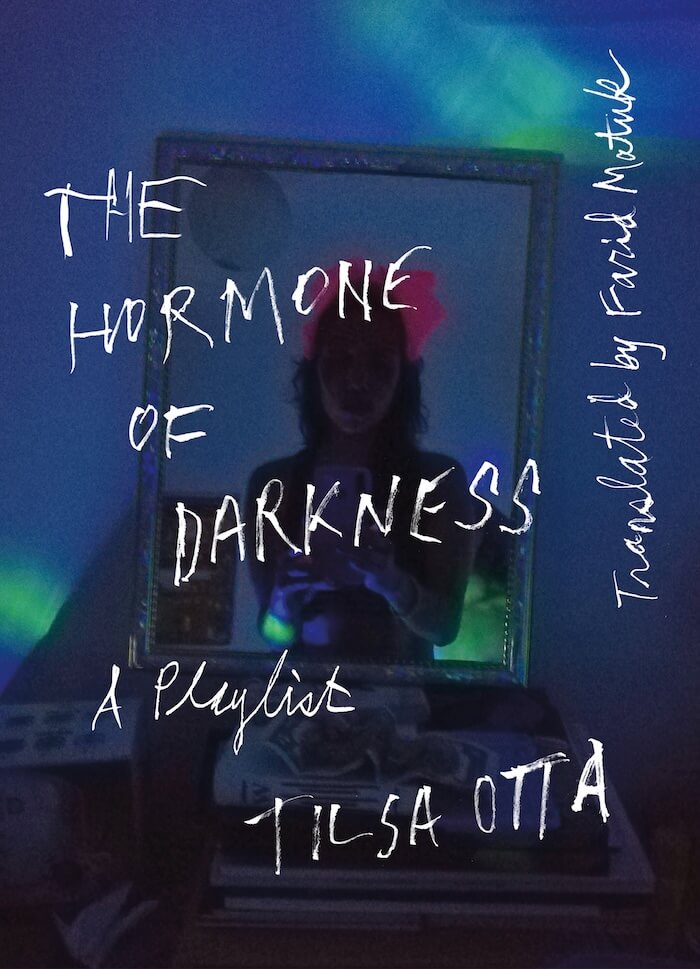
The Hormone of Darkness: A Playlist
In Tilsa Otta’s The Hormone of Darkness, we find a queer, Latinx person who has lived through iterations of authoritarian rule, and who answers these conditions by creating poetry that doubles down on a life force that precedes and exceeds received notions of the poetic. Here poetry is bawdy, fabulist, and spiritual—in short, it is alive. Otta has created a heaven where readers can go after they die.
Drawing from four volumes spanning Otta’s career, translator-poet Farid Matuk has curated a playlist we can dance and dream to, one that honors Otta’s drive toward liberation through both perreo in the club and transdimensional wandering among the stars.
We can go on like that forever
building paradise from our urges
out of our fetishes our loves our vices
How lucky
We’ll wait for you then
Don’t be too long
Bookmark the page
We’ll be Here
—From “The New Heaven”
Translated from the Spanish by Farid Matuk.
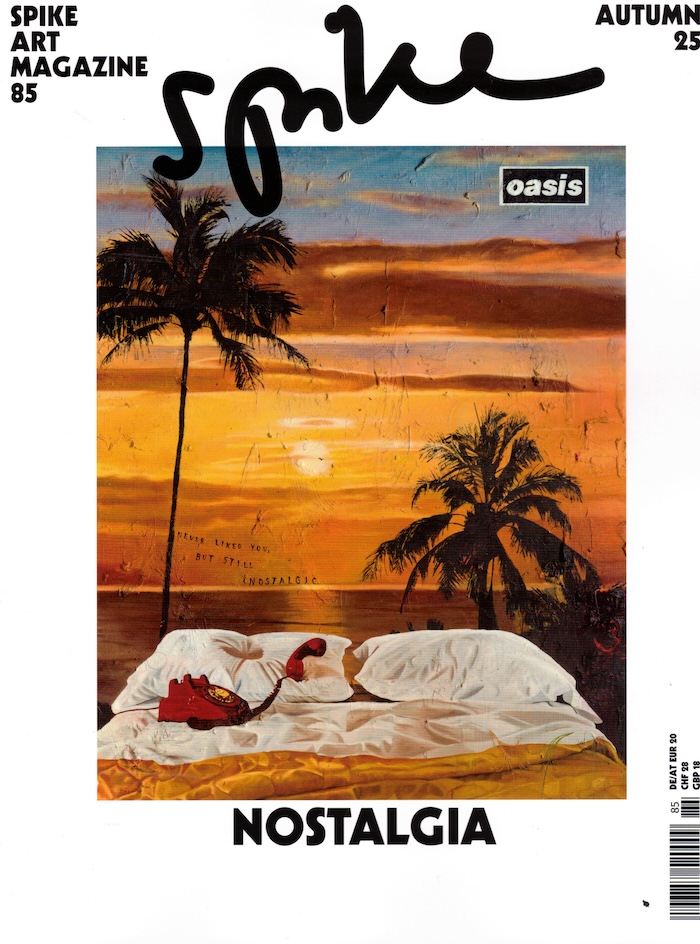
Spike #85 – Nostalgia
For Fall 2025, Spike is getting to the bottom of the vintage aura around contemporary culture: Nostalgia.
Are we doomed to ever-shorter cycles of cash-cow retromania, until AI memory-wipes us with pure simulation? Or is the root problem of our endless déjà vu actually the expectation that art "make it new," itself just so much nostalgia for a long-gone modernism? We're working out what the present owes to the past, if our goal is to conjure a better culture for tomorrow.
Featuring Jeppe Ugelvig's essay on the art world's uses and misuses of nostalgia; Simon Reynolds and Adina Glickstein talk exhausting the past; e-girl/theorist Alex Quicho critiques the end of newness; filmmaker Johan Grimonprez identifies with the hijacker in his dial H-I-S-T-O-R-Y (1997); a portrait of kitsch-savant painter Friedrich Kunath; cultural critic Rosanna McLaughlin on missing the white cube; Artist's Favorites by Diego Marcon; ex-dealers Margaret Lee and Jeff Poe escape the art game; Whitney Mallett on rebranding celebrity through book culture; making analog-ish art "under" the internet with Marc Kokopeli, Bedros Yeretzian, Flora Hauser, and Nicole-Antonia Spagnola; Sean Monahan forecasts our old-fashioned future; art historian Lynn Zelevansky on "New York/New Wave" at P.S.1 Contemporary (1981); artist Maja Bajevic's Yugostalgic report from Sarajevo; and Tea Hačić-Vlahović getting dewy-eyed catching up to her mother's age; plus, reviews of exhibitions by Mark Leckey, Wolfgang Tillmans, Women's History Museum, and more.
Founded by the artist Rita Vitorelli in 2004, Spike (Spike Art Quarterly) is a quarterly magazine on contemporary art published in English which aims at sustaining a vigorous, independent, and meaningful art criticism. At the heart of each issue are feature essays by leading critics and curators on artists making work that plays a significant role in current debates. Situated between art theory and practice and ranging far beyond its editorial base in Vienna and Berlin, Spike is both rigorously academic and stylishly essayistic. Spike's renowned pool of contributing writers, artists, collectors and gallerists observe and reflect on contemporary art and analyse international developments in contemporary culture, offering its readers both intimacy and immediacy through an unusually open editorial approach that is not afraid of controversy and provocation.
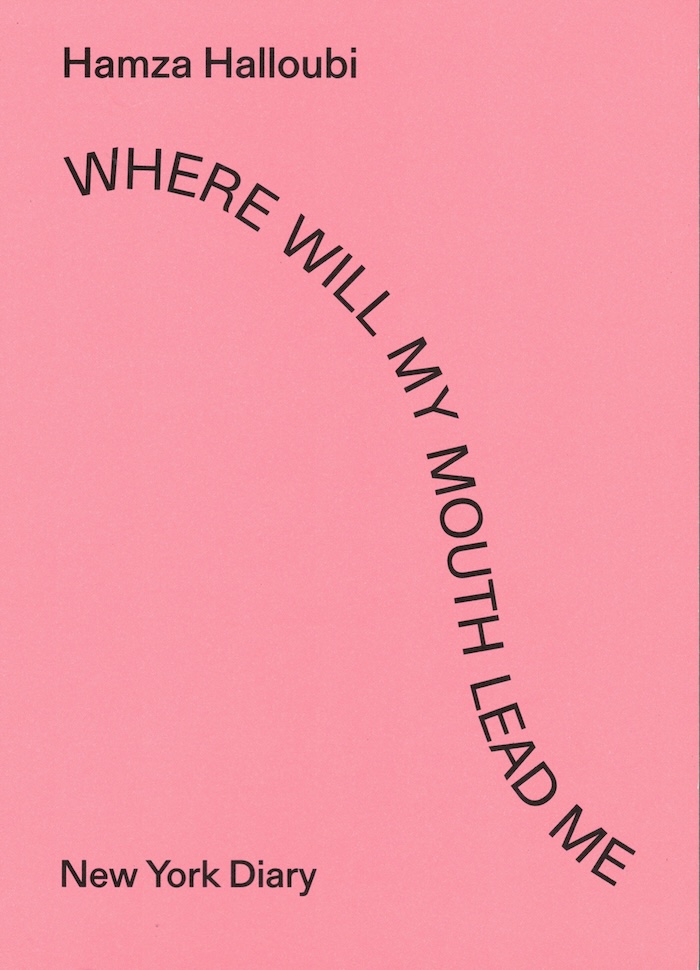
Where Will My Mouth Lead Me – New York Diary
The artist's travel diary in New York.
Where will my mouth lead me? This question arises already in the first days of Hamza Halloubi's residency in New York. It characterises his diary entries from August to November 2024. He observes the art world, comments on cultural and political events and thinks about writers and artists who have long intrigued him and what his body and their ideas are doing in this city–and what this city does not do to him and them: David Hammons, Edward Saïd, Mohamed Choukri, Félix González-Torres… How they also appear like ghosts in his work. Hamza Halloubi approaches the viewer of his visual work, and here also the reader, as a social and political presence. In addition to his diary and image fragments from his films and exhibitions, this pocket book also includes two interviews with the artist.
Hamza Halloubi (born 1982 in Tangier, Morocco, lives and works between Brussels, Tangier, and Amsterdam) is a multi-disciplinary artist with a focus on video and painting.
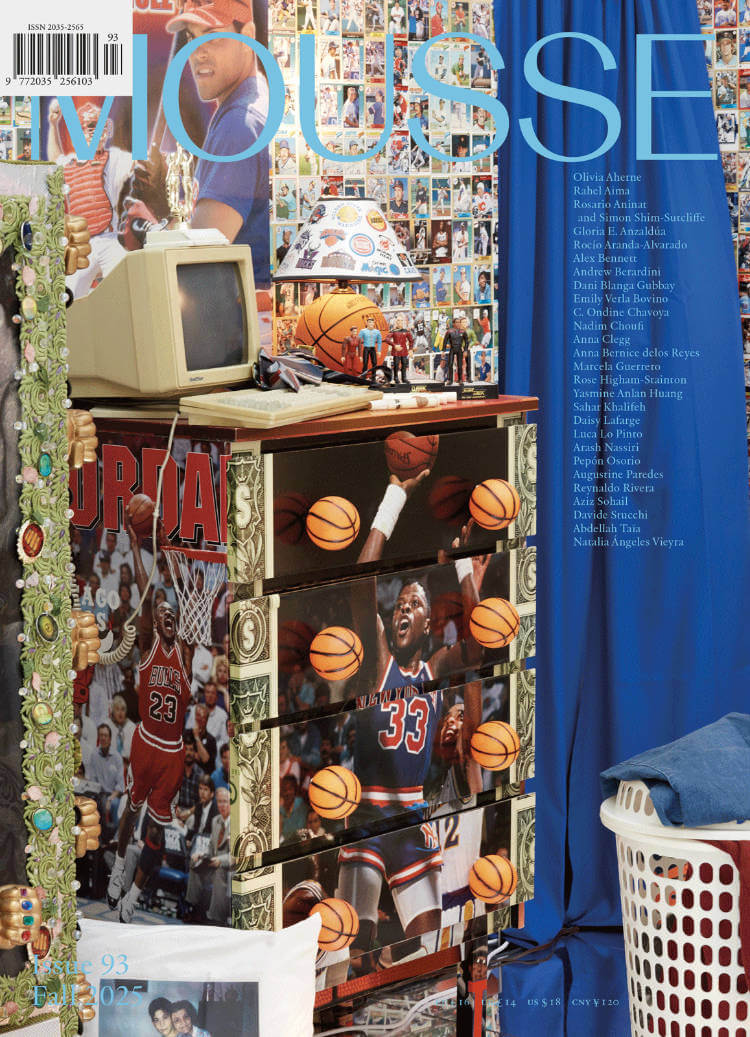
Mousse #93
Andrew Berardini on Artificial Intelligence; Pepón Osorio; Arash Nassiri; Gloria E. Anzaldúa; Marcela Guerrero speaks with C. Ondine Chavoya; Daisy Lafarge; Dani Blanga Gubbay; Davide Stucchi speaks with Alex Bennett; Luca Lo Pinto on Hanuman Editions; Reynaldo Rivera & Abdellah Taïa; Jungle Books...
This issue comes with different covers, randomly distributed.
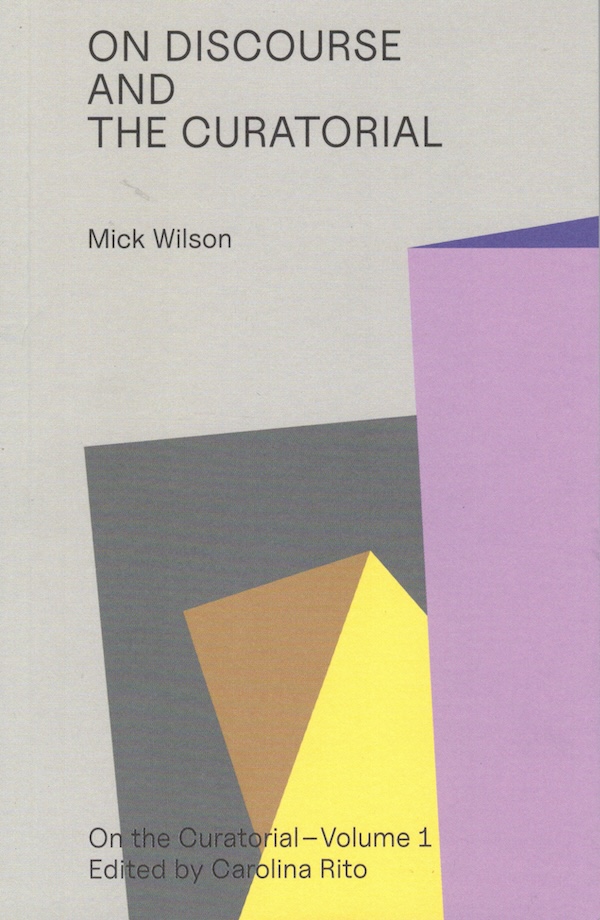
On Discourse and the Curatorial
Production of exhibitions and production of discourse on exhibitions.
With the paradigm of salon exhibitions, developed some three centuries ago, bourgeois art patrons were moved to transform their experience of an exhibition into words. This incitement to discourse persists as a central component of contemporary curatorial practice, within and beyond exhibitions as singular events. In On Discourse and the Curatorial, Mick Wilson draws out the link between the dual imperatives to generate discourse and to cultivate culture, which emerge in the genealogy of the salon, the exhibition complex, and the museum.
In the early 2010s, the idea of "the curatorial" arose after a short but intense debate about what it means to curate exhibitions. The books in the On the Curatorial series look at the consequences of that discussion today and ask: Do we need different curatorial tools to engage with deepening social, political, and ecological crises? The series allows earlier participants in the debate to reflect on how their concepts and practices have changed, while younger generations of curators explore the ongoing need for new conceptual approaches to curation.
The series is edited by Carolina Rito, who is professor of creative practice research at the Research Centre for Arts, Memory, and Communities, Coventry University, UK, and executive editor of Contemporary Journal.
Mick Wilson is professor of art and director of doctoral studies at the University of Gothenburg and co-chair of the Centre for Art and the Political Imaginary.